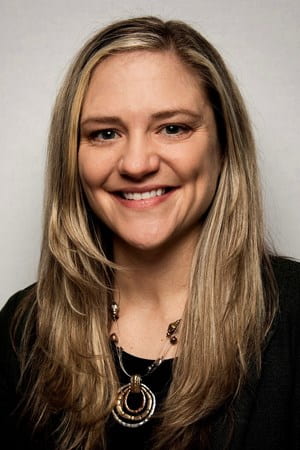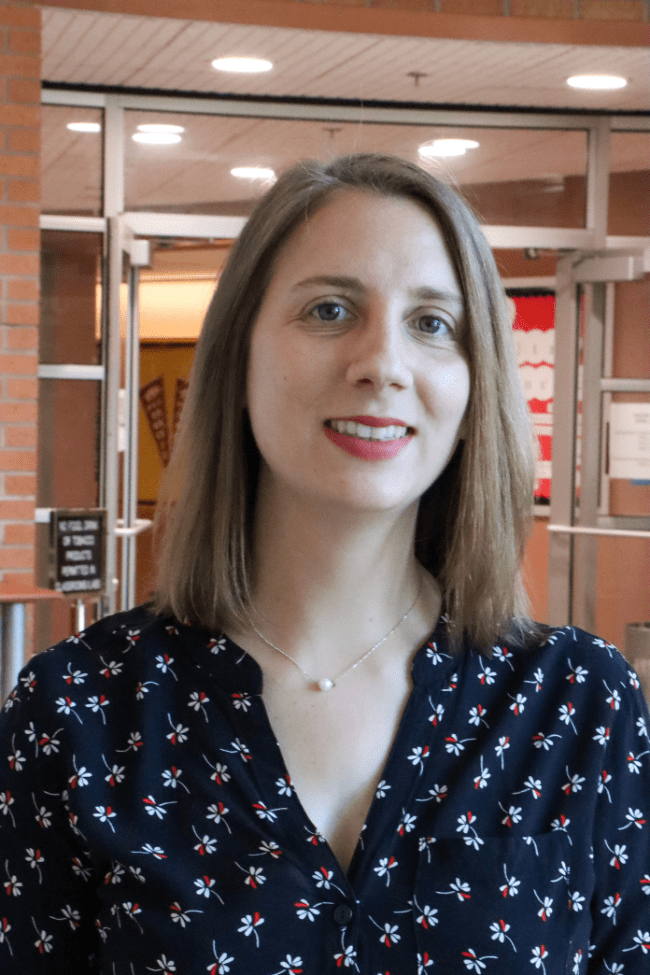Meet the Team

Dr. Shawna Weimer
Assistant Professor, Department of Poultry Science
Director, Center for Food Animal Wellbeing, University of Arkansas
479-575-2759 | sweimer@uark.edu
Dr. Shawna Weimer is an internationally recognized academic and researcher specializing in poultry science and animal welfare. Dr. Weimer rejoined her alma mater in 2022 as an Assistant Professor in the Department of Poultry Science and the Director of the Center for Food Animal Wellbeing at the University of Arkansas. Dr. Weimer’s experience in the agricultural industry informs her innovative research and active collaboration with industry organizations. In 2023, she was honored with the Early Career Award for Extension from the Poultry Science Association. Dr. Weimer actively contributes to professional organizations, including the Poultry Science Association, Center for Food Integrity, International Poultry Welfare Alliance, and the Professional Animal Auditor Certification Organization. Her teaching portfolio includes a course on animal welfare and guest lectures at the University of Arkansas. Through the Center for Food Animal Wellbeing, Dr. Weimer supports experimental and field research projects to improve cattle and poultry welfare and hosts an annual symposium at the Don Tyson Center for Agricultural Studies. Additionally, Dr. Weimer is a founding member of the Poultry Extension Collaborative, which publishes monthly Poultry Press articles and hosts bi-annual virtual symposia, furthering advancements in poultry welfare.
Previous education
- A.A. Marshalltown Community College
- B.S. Iowa State University
- M.S. Iowa State University
- Ph.D. University of Arkansas
Inspiration for welfare research
Since I can remember, I have always loved animals. Growing up in Iowa, I was immersed in agriculture. My academic journey and professional experiences have deepened my commitment to improving animal welfare through scientific inquiry and practical applications. My time working in the agricultural animal industry gave me invaluable insights into the real-world issues faced by farmers. This experience has fueled my passion for developing welfare-centric practices that are both scientifically sound and practically feasible. I am driven by the belief that animal welfare is a critical component of sustainable agriculture, and my research aims to bridge the gap between scientific advancements and industry practices. By fostering collaborations with industry organizations and leading research initiatives, I strive to create meaningful changes that benefit both animals and the agricultural community. My work is guided by the principle that improving animal welfare not only enhances the lives of animals but also contributes to the overall sustainability and ethical integrity of the agricultural sector.
Future aspirations
My future aspirations are deeply rooted in my dedication to advancing animal welfare in the agricultural sector. I aim to lead pioneering research that addresses the most pressing welfare challenges in poultry and livestock production. By leveraging cutting-edge technologies and interdisciplinary approaches, I aspire to develop innovative solutions that can be readily adopted by the industry to enhance animal welfare standards. I envision expanding the impact of the Center for Food Animal Wellbeing by fostering stronger collaborations with global research institutions, industry partners, and policymakers. She aspires to create a robust network of stakeholders committed to promoting welfare-centric practices across all levels of animal production. Through this network, she plans to drive policy changes that prioritize animal welfare and sustainability in agriculture. Additionally, Dr. Weimer is passionate about educating the next generation of animal scientists and industry leaders. She aims to develop comprehensive educational programs and training workshops that equip students and professionals with the knowledge and skills necessary to implement welfare-friendly practices. Ultimately, Dr. Weimer aspires to make significant strides in improving animal welfare globally, ensuring that scientific advancements translate into tangible benefits for animals, producers, and consumers alike.

Dr. Rosie Whittle
Dr. Rosie Whittle has a strong interest in animal behavior and welfare, shaped by her experience working with farm and zoo animals in human-managed systems. This hands-on exposure sparked her passion for understanding animal behavior, which deepened during her Bachelor’s degree in Zoology at Swansea University.
She pursued her Master’s in Applied Ethology at Linkoping University, Sweden, under the supervision of Dr. Per Jensen, focusing on commercial hatchery stress. Rosie continued her academic journey with a PhD in Animal Biosciences at the University of Guelph, Canada, where she researched the effects of maternal feeding of omega-3s on chicken behavior, supervised by Dr. Tina Widowski. This research sparked her interest in maternal nutrition and brain development and their implications for behavior.
Currently, Rosie works as a postdoctoral fellow under Dr. Shawna Weimer at the University of Arkansas, focusing on researching ways to enhance animal care practices. She is dedicated to inspiring future researchers in animal behavior and aims to become a professor in the field to advance animal welfare.

Angela Perritti
Snr. Graduate Assistant & Ph.D. student, Department of Poultry Science, University of Arkansas
479-575-2759 | perretti@uark.edu
Angela is from Philadelphia, PA, currently pursuing a PhD in poultry science at the University of Arkansas in the Weimer Lab. My position at the Weimer Lab is Senior Graduate Assistant. My position in Weimer Lab is to develop research projects both for myself and the lab and continue to explore the field of animal behavior through presentations and writings. I hold a bachelor’s degree from Rosemont College and a master’s from West Chester University both in psychology. During my master’s I was able to pursue my personal interest in animal behavior and welfare utilizing behavioral observations of the western lowland gorillas at the Philadelphia Zoo. My time at the University of Arkansas in the Weimer Lab has shown me the application of animal welfare for the improvement of a broiler’s wellbeing. As long as I can remember I have been compelled to improve the overall quality of life for all animals but especially the most vulnerable, and poultry is such a widespread species used for many purposes, that when the opportunity presented itself, I knew that a career and education in animal welfare was the path I had always been looking for. After I graduate with my PhD in poultry science, I hope to work in extension research for poultry and become a professor focused on animal behavior and welfare.

Jaelen Cherry
Graduate Assistant & MSc student, Department of Poultry Science, University of Arkansas
Jaelen Cherry joined Dr. Shawna Weimer’s lab team as a Graduate Assistant in the Fall of 2023 after earning his Bachelor of Science in Animal Science from the University of Maryland-College Park. During his undergraduate years, Jaelen collaborated with Dr. Weimer on researching animal welfare regulation within the Poultry Science industry. Through this opportunity and Dr. Weimer’s mentorship, Jaelen was fueled with a passion to improve the standards of animal welfare in agricultural practices and how animal welfare is measured. This passion inspired him to pursue a master’s degree in Poultry Science, driven by the belief that integrating animal welfare considerations into food production not only enhances ethical practices and production outcomes but also may benefit consumer products and reduce animal losses. With issues such as population growth and climate change, Jaelen has concerns about the future of animal production. He anticipates a greater need to regulate and enhance the welfare of animals used in food production. Jaelen plans to use his experience in research and academia to advance practical standards and sustainable animal production, with his goal is to influence industry and governmental regulation of animal welfare.

Victor Oyeniran
MSc student, Department of Poultry Science, University of Arkansas
479-575-2759 | oyeniran@uark.edu
Victor Oyeniran is currently a Graduate Research Assistant at the Weimer Lab, University of Arkansas, where he is working towards a master’s degree in Poultry Science with focus on animal behavior and welfare. Prior to this, he earned a Bachelor’s degree in Animal Physiology from the Federal University of Agriculture, Abeokuta, Nigeria, where his thesis explored social facilitation between commercial broilers and Nigerian indigenous chicks and its effect on their welfare. Victor’s inspiration for welfare research stems from his passion that the behavior of every animal differs, and they all deserve to live a good quality life. Looking ahead, Victor aspires to work closely with farmers through extensions programs, acquire hands-on industry experience that will prioritize sustainable and humane practices that ensures poultry are better cared for, contributing to a healthy and environmentally friendly poultry production while also acquiring more academic knowledge. His professional affiliations with the Universities Federation for Animal Welfare, International Society for Applied Ethology, and Poultry Science Association underscore his commitment to this field.

Dr. Seong Kang
Postdoctoral Fellow, Department of Poultry Science, University of Arkansas
479-575-2759 | swkang@uark.edu
Dr. Seong Kang has postdoctoral research experiences in poultry reproductive physiology and stress physiology. Currently, he works as a postdoctoral fellow at the University of Arkansas, Department of Poultry Science (POSC) for investigation of poultry brain function to improve broilers’ welfare, and collaboration with poultry industry, Tyson Foods, by providing research insights for broilers’ welfare and production. In addition to collaborating research with other POSC faculties, he likes to help and mentor graduate students when they need it. He has a PhD in avian physiology at the University of Minnesota, and MS in Biochemistry at the Konkuk University, South Korea. He has functional physiology backgrounds in avian species, and present research interests in establishing environmental enrichments (lighting and hut) for improving welfare and performance of commercial broiler chickens, and optimization of sprinkler technology systems for conserving natural resources (water, feed and energy) and mitigating heat stress, one of the most challenging stressors to poultry production and commercial broiler chickens.
